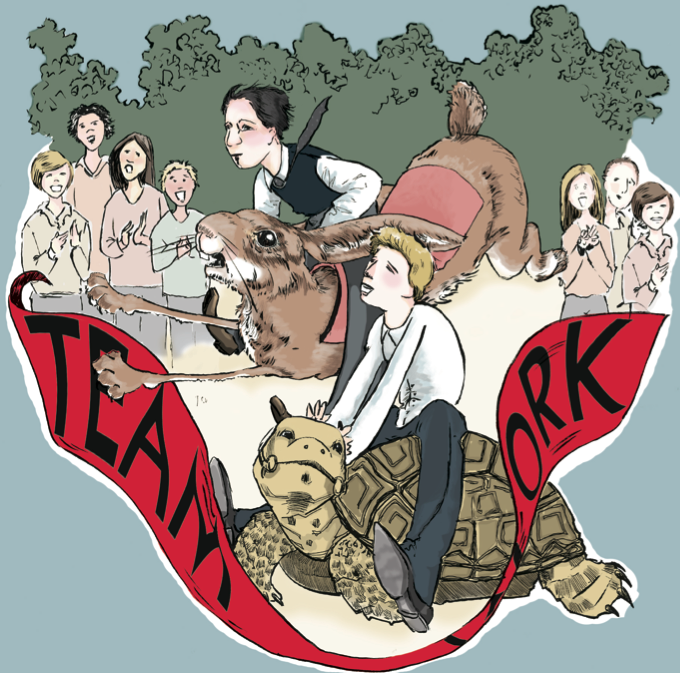Teams that Play Together, Stay Together

I’ve heard many leaders lament the fact that it’s really hard to keep good people. That makes sense because good employees have options. So when people discover that Woodcrest regularly celebrates 20th anniversaries with its employees (one this year, one next year and my own last year), they often ask why.
I wish I had a more profound response, but the truth is simple: Teams that play together stay together. We do many of the things that healthy organizations have to do to keep the team engaged. We are clear on mission. We give people freedom to explore their passions. We do necessary relational conflict. We compensate fairly. But when it comes to the real reason for why people stay, I think it comes down to play.
We have staff fun days. We celebrate birthdays. We even built a climbing wall outside one of buildings that staff members have used to challenge each other. But beyond these events and activities, it’s about the spirit of the place. We see laughter and playfulness as a good thing.
This is common practice for many cutting-edge companies. Google employees are paid to play volleyball and go bowling. Employees at LinkedIn play foosball and Ping-Pong when they get tired of looking at their computer screens. And even one of our own local companies, Veterans United, is notorious for its Nerf Gun wars and paper airplane-flying contests.
At first glance this may seem like a waste of time, but Tim Brown, CEO of IDEO, said in his 2008 TED talk that play can be an essential ingredient in stimulating creativity.
“As adults we are fearful of the judgment of our peers, which stifles our willingness to share what we might perceive to be a ‘crazy’ idea. But these out-of-the-box ideas are an essential part of any creative process. When people are willing to risk playing together, it removes barriers and creates a sense of safety such that people are less worried about saying something foolish. The next thing you know, people are solving problems that have kept them stumped for years.”
It doesn’t take long to see how experiencing that kind of freedom and creativity is not only good for the company, but it’s also great for those who are part of it. People feel fulfilled, free to be themselves and part of something they can genuinely enjoy. Work isn’t just a place to make a living; it becomes a place where you can have a life.
The Marshall Rules
Marshall Robb has his Ph.D. from the University of Missouri and is an adjunct professor at Williams Woods University. He’s also the director of Solid Rock Camps and consults company’s through experiential learning environments, which is a fancy way of saying he helps adults learn how to play and learn from their play.
Robb believes strongly in the power of play in removing barriers. When people let down their guard (experientially) through games, it isn’t that much of stretch to see the same thing happen in the workplace. The game itself isn’t even the main focus; it’s what happens while people are playing them that matters.
As a result, Robb is always working on three basic practices. He playfully refers to them as the Marshal Rules:
- Cooperation: Most people think games are all about competition, and there is always an element of that. But my emphasis is always on cooperation. People win when they learn to play well together.
- Communication: People assume communication happens, but many employee groups note communication as the very thing that doesn’t happen. Creating games that help people understand the importance of good communication has a significant positive net effect on the job.
- Community: Everyone says they want to feel at home at work. They want to experience community. At the heart of community is trust. If you have trust, people will share freely and engage cooperatively. Playing a trust-building game can expose weaknesses and create new positive experiences between team members in a nonthreatening manner.
Additional resources: project-adventure.org; wilderdom.com/games/trustactivities.html; PLAY: How It Sharpens the Brain, Opens the Imagination and Invigorates the Soul by Stuart Brown and Christopher Vaughan; Book of Metaphors by Michael Gass


